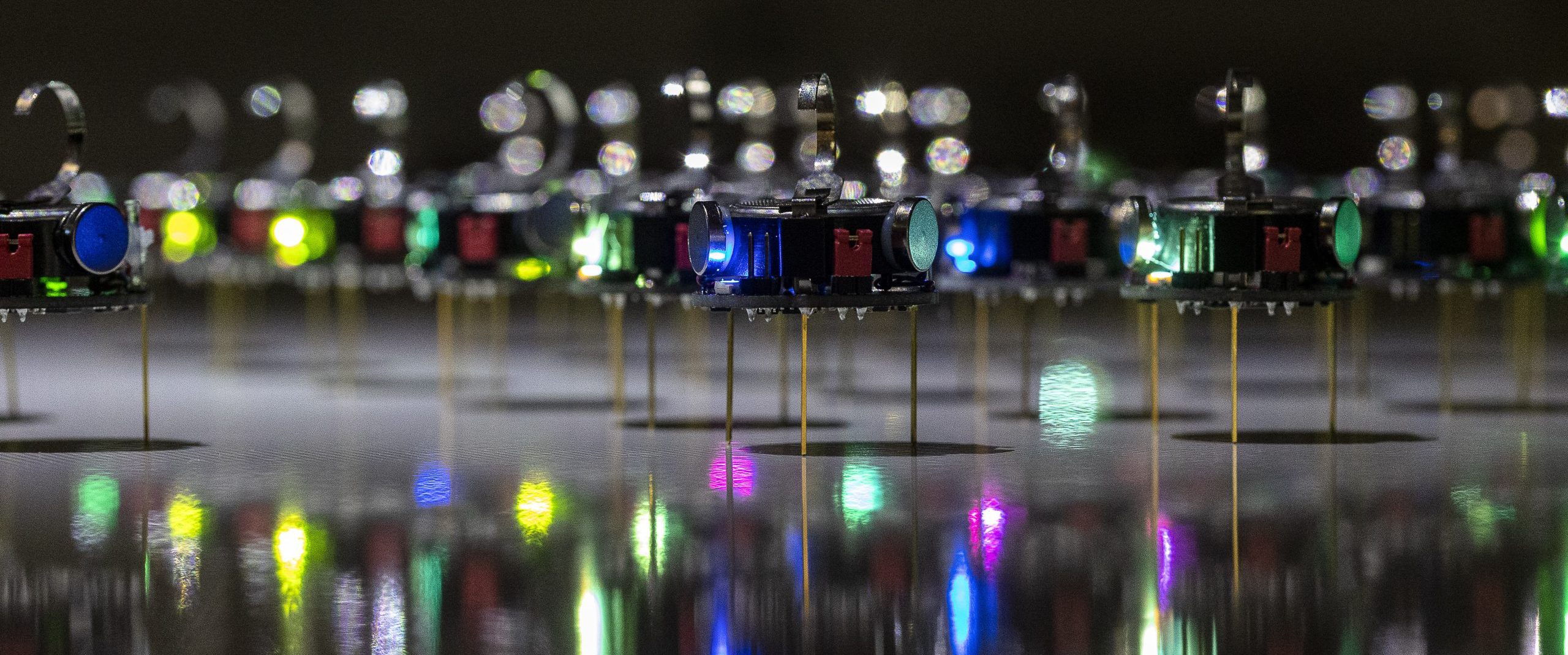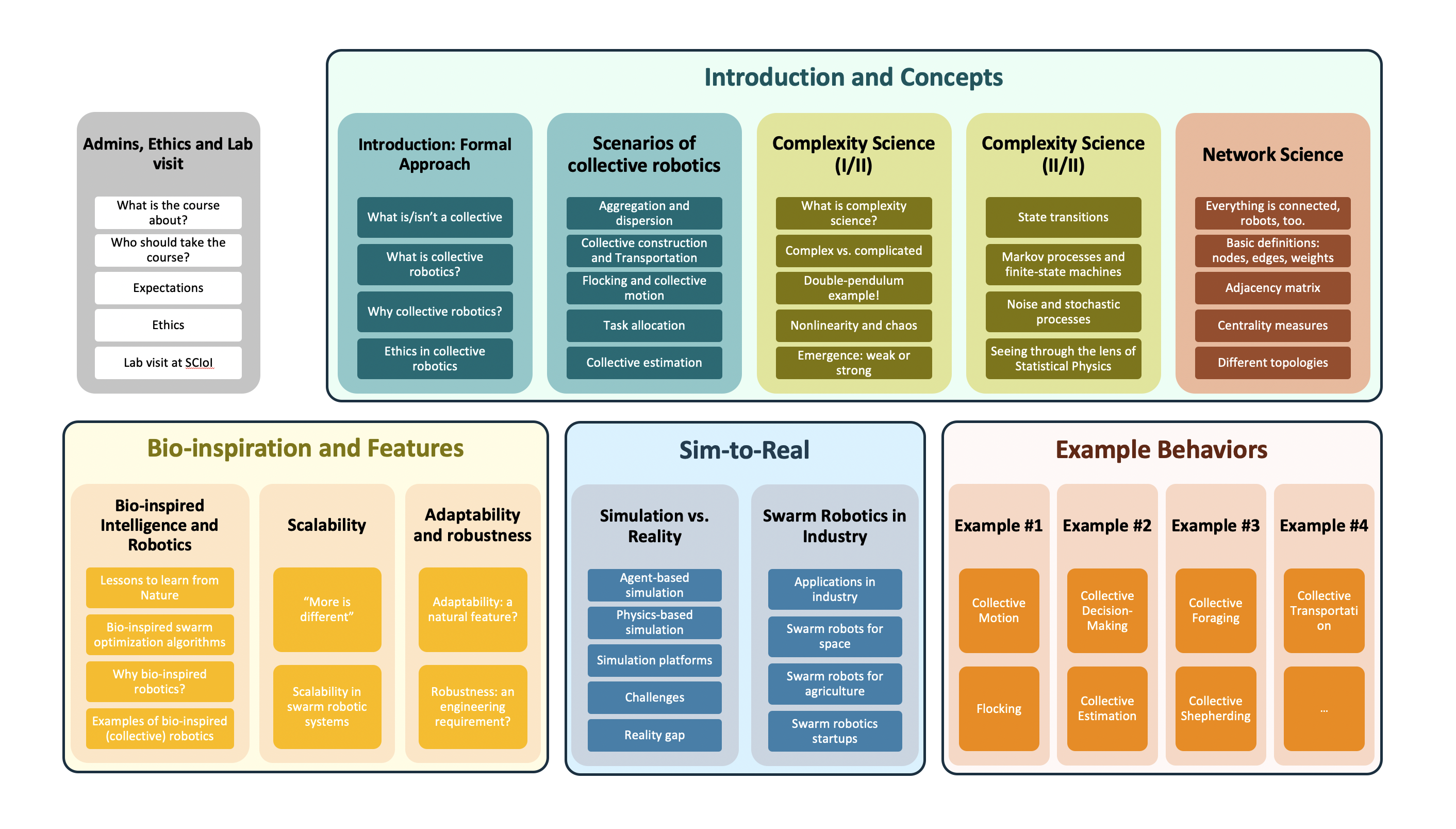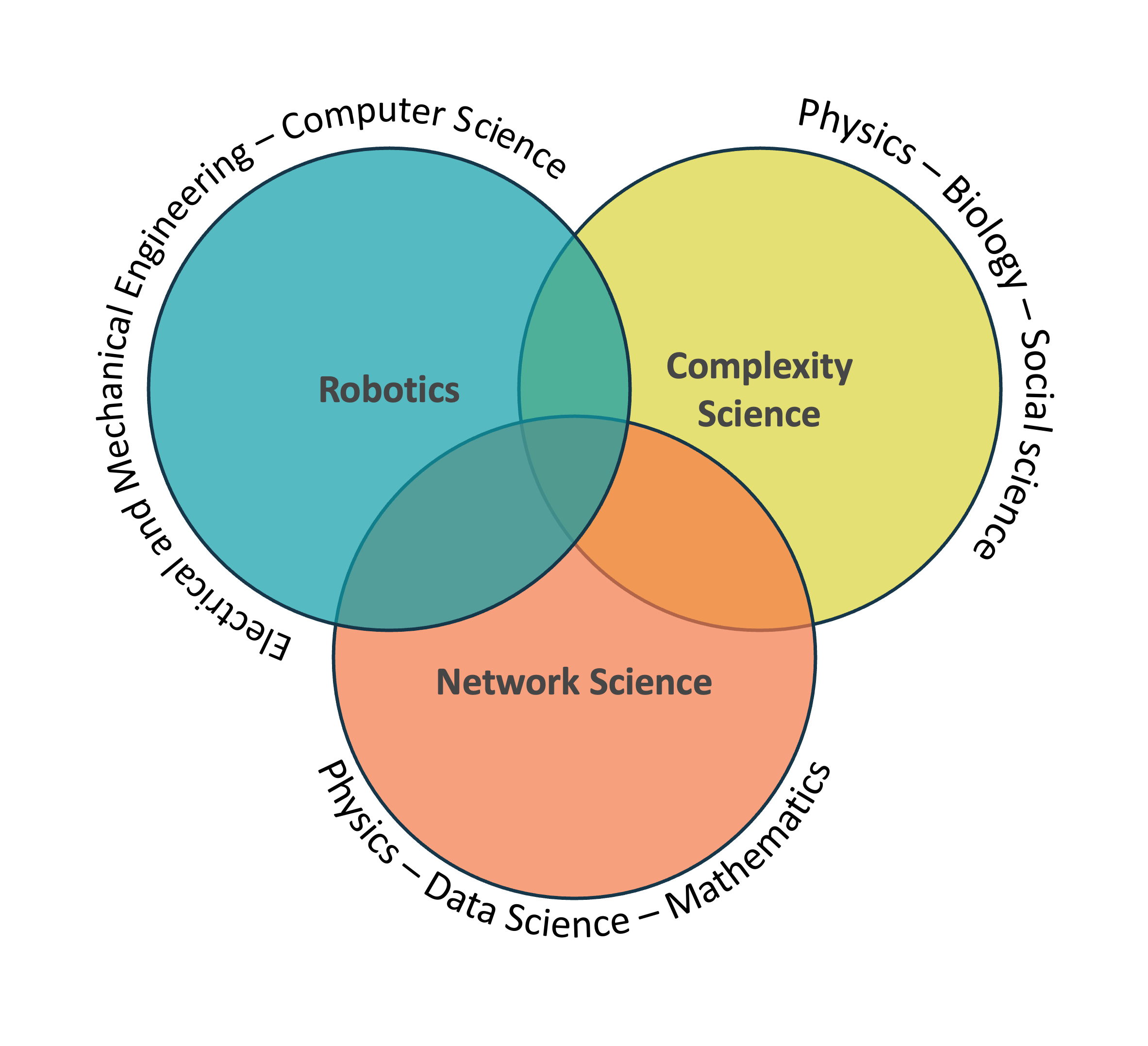Introduction to Collective Robotics: Where Complexity Meets Robotics
This seminar course aims to provide an overview on the topic of collective robotics while exploring key areas like complexity science, network science, and engineering. Our curriculum goes beyond traditional engineering education by incorporating concepts from complexity and network science, offering a broad, interdisciplinary experience. In the beginning, we address potential societal and ethical concerns related to autonomous systems, particularly in areas like military use, privacy, and security, and we commit to ensuring an ethical approach on the study and use of collective robotics throughout the progress of the course.
A unique aspect of this course is the special opportunity to teach from the research projects within our Cluster of Excellence, Science of Intelligence (SCIoI). We get to share what we’ve learned throughout these projects with students interested in this field, potentially guiding them in their future studies. Additionally, a key feature of the course is the participation of research and industry-leading experts as distinguished guest speakers. This gives us the chance to hear from professionals actively working in the field.
Content:
We will cover topics from the following list:
* Ethics of Robotics
* Scenarios of Collective Robotics
* Introduction to Complexity Science
* Crash course on Network Science
* Bio-inspired Robotics
* Scalability, Adaptability, and Robustness in Collective Systems
* Simulation Platforms
* Example Collective Behaviors (Decision-Making, Estimation, Flocking, Foraging)
* Collective Robotics in Industry
Course Duration:
15 October 2024 – 11 February 2025
Venue:
MAR Building @ TU Berlin
Marchstr. 23, 10587 Berlin
Room 2.057
Link for Speaker Sessions:
Zoom
Schedule:
Tuesdays 4–6pm
Language:
English
Course Organizer:
Mohsen Raoufi
Supervising PIs:
Joerg Raisch, Pawel Romanczuk, Heiko Hamann
Learning Outcomes:
As an interdisciplinary course, it offers diverse insights into collective robotics systems as complex systems. The course aims to cover topics on the overlap between complexity science, network science, and robotics. Upon successful completion, participants will have gained the following:
- brief insights into complexity and network science
- a knowledge of how to see collective robotics systems through the lens of complexity and network sciences
- familiarity with the recent topics from the leading experts in the field
- research practice, by writing a paper on related topics



















